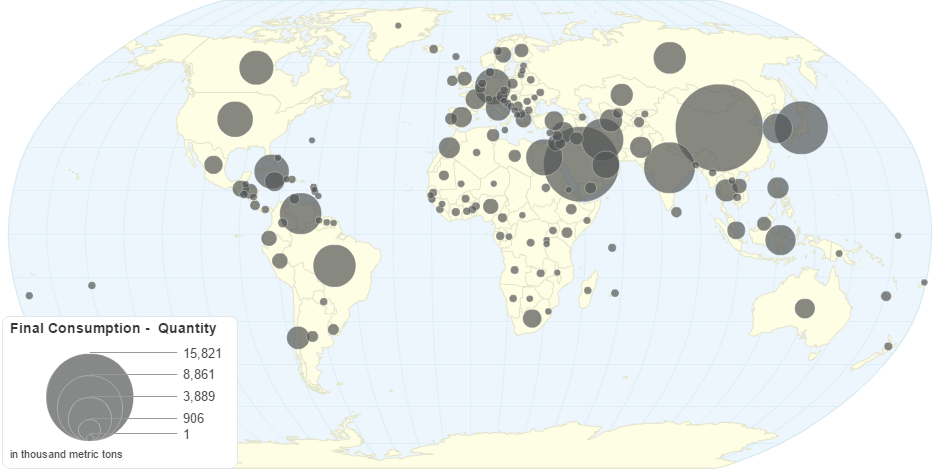This chart shows Fuel Oil - Final Consumption by Country.
Fuel oil is a fraction obtained from petroleum distillation, either as a distillate or a residue. Broadly speaking, fuel oil is any liquid fuel that is burned in a furnace or boiler for the generation of heat or used in an engine for the generation of power, except oils having a flash point of approximately 107 °F and oils burned in cotton or wool-wick burners. In this sense, diesel is a type of fuel oil.
Fuel oil is made of long hydrocarbon chains, particularly alkanes, cycloalkanes and aromatics.
Oil has many uses; it heats homes and businesses and fuels trucks, ships and some cars. A small amount of electricity is produced by diesel, but it is more polluting and more expensive than natural gas. It is often used as a backup fuel for peaking power plants in case the supply of natural gas is interrupted or as the main fuel for small electrical generators.
Residual fuel oil is less useful because it is so viscous that it has to be heated with a special heating system before use and it may contain relatively high amounts of pollutants, particularly sulfur, which forms sulfur dioxide upon combustion. However, its undesirable properties make it very cheap.
In fact, it is the cheapest liquid fuel available. Since it requires heating before use, residual fuel oil cannot be used in road vehicles, boats or small ships, as the heating equipment takes up valuable space and makes the vehicle heavier.
Fuel oil is transported worldwide by fleets of oil tankers making deliveries to suitably sized strategic ports such as Houston, Singapore, Fujairah, Balboa, Cristobal, Sokhna (Egypt), Algeciras and Rotterdam. Where a convenient seaport does not exist, inland transport may be achieved with the use of barges. Lighter fuel oils can also be transported through pipelines. The major physical supply chains of Europe are along the Rhine.
9 years ago

